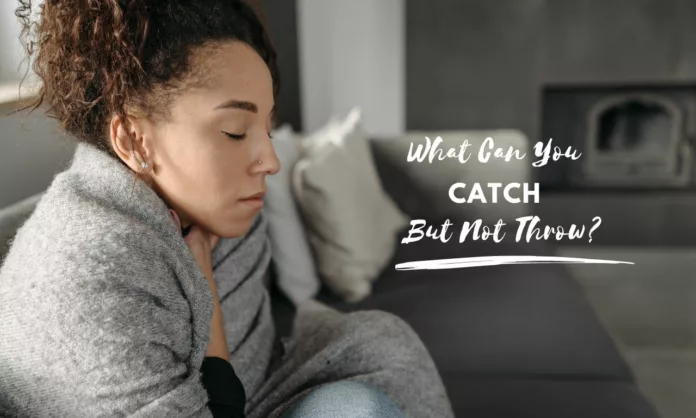Life is full of paradoxes, and some of the most intriguing ones lie in the realm of riddles and puzzles. Among these brain teasers is the question: “What can you catch but not throw?” It may seem like a puzzling conundrum at first, but upon closer examination, the answer becomes clear.
The answer to this perplexing question is “a cold.” Yes, that’s right – a cold is something you can catch, but try as you might, you can’t simply throw it away. So, why is catching a cold different from throwing it? Let’s delve deeper into the concept to unravel the mystery.
When we talk about catching a cold, we are referring to becoming infected with a common viral illness, often caused by the rhinovirus or coronavirus. These viruses are usually transmitted through tiny droplets released into the air when an infected person coughs, sneezes, or even talks. These droplets can carry the virus, and if they come into contact with your nose, mouth, or eyes, you can become infected too.
The act of catching a cold is passive. It happens when you unwittingly come into contact with the virus and your immune system is unable to fight it off before it establishes an infection. You don’t actively seek out a cold or make a deliberate effort to acquire it. Instead, it is something that can happen as a consequence of your environment or interactions with others who are infected.
On the other hand, throwing something implies an active choice to get rid of it or intentionally pass it on to someone else. When it comes to a cold, you cannot simply throw it away like a ball or a Frisbee. Once you catch a cold, it lingers in your body until your immune system fights it off and eliminates the virus. You can take measures to alleviate the symptoms or speed up the recovery process, but you cannot toss it aside or transfer it to someone else at will.
Moreover, it is crucial to remember that throwing a cold, in the literal sense, would not only be impossible but also highly undesirable. Colds are contagious, and deliberately spreading the virus to others would be inconsiderate and potentially harmful, particularly to those with weaker immune systems, such as the elderly or individuals with pre-existing health conditions.
So, while you can catch a cold from someone else, you cannot throw it away or intentionally pass it on. It is an experience that you endure until your body successfully fights off the infection and you recover.
While the question of what can be caught but not thrown may seem like a simple riddle, it also carries a broader lesson. It reminds us of the importance of personal responsibility and empathy towards others. By taking precautions such as practicing good hygiene, covering our mouths when coughing or sneezing, and staying home when we’re sick, we can reduce the spread of illnesses like the common cold and protect those around us.
In conclusion, catching a cold is a passive act that occurs when you come into contact with a virus and your immune system fails to fend it off in time. However, you cannot throw a cold away or intentionally pass it on to others. The inability to throw a cold reminds us to be responsible, considerate, and mindful of our actions to prevent the unnecessary spread of contagious illnesses. So, the next time you find yourself reaching for a tissue or a cup of hot tea to soothe your symptoms, remember that a cold is something you catch, but you cannot throw away.

